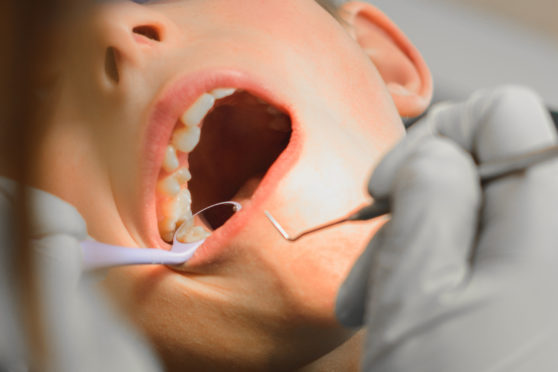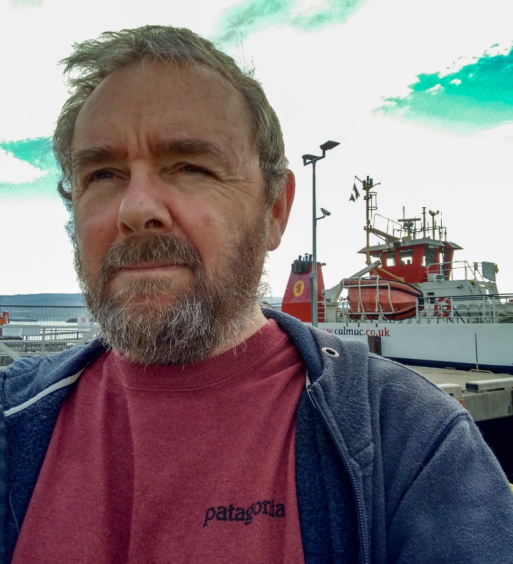
Children waiting longer for urgent dental treatment because of the lockdown are at increasing risk of potentially fatal infection, a leading dentist has warned.
David McColl, chairman of the Scottish Dental Practice Committee, says the coronavirus crisis has increased an existing backlog of cases of children requiring surgery under a general anaesthetic.
Scotland’s biggest health board, NHS Greater Glasgow and Clyde, has 400 children waiting for general anaesthetic procedures but Mr McColl said the true figure could be double that since children were only added to the list when their parents accepted an appointment, not when referred by dentists.
And he fears children waiting months for dental surgery face repeated antibiotic prescriptions and the risk of contracting sepsis.
Mr McColl, who has a dental practice in Govanhill, Glasgow, said: “Some children need to be referred immediately for extractions and I can think of one patient with autism who really needs teeth extracted but cannot. There are children with and without autism, who cannot have their teeth extracted in surgeries. They would be too traumatised.”
Mr McColl added: “Despite overall reduction in the number of children waiting on dental treatment in NHS Greater Glasgow and Clyde there is little change in the numbers of paediatric anaesthetists available for the general anaesthetic for this surgery.
“The numbers of children waiting is growing with treatment being cancelled to accommodate the focus on Covid patients.”
Dr Ron Daniels, an ICU anaesthetist and CEO of the Sepsis Trust said: “Sepsis is a risk in children with gum infections.
“We all understand that difficult decisions have to be made during Covid. However, where there are people, indeed children, vulnerable to repeated infections this has to be given careful consideration.”
The British Dental Association Scotland says it has expressed “deep concerns” for a number of years about lengthy waiting times for paediatric extractions under general anaesthetic and the pain and distress this causes children and their families.
In July 2019, the association wrote to the Scottish Government to ask it to work with NHS boards to ensure there were sufficient local resources to tackle long waiting lists, and consider establishing a dedicated national centre in a single location to address the issue.
The association says that NHS Greater Glasgow and Clyde seems to have a particular problem, but other boards may also be experiencing difficulties.
Children who develop cavities and gum disease may be more likely to develop risk factors for heart attacks and strokes decades later, research has shown.
A study last year in The Journal of the American Medical Association looked at children with dental disease and discovered a higher risk of heart attacks and strokes in later life than those with good oral health.
The Scottish Government said: “NHS boards tightly manage their paediatric dental waiting lists, with a clear system for fast-tracking children in pain and urgent clinical need, including general anaesthesia if required. This has not changed during the Covid-19 period.”
NHS Greater Glasgow & Clyde said: “On 23 March 2020 the chief dental officer instructed that all routine dentistry provided by General Dental Services, the Public Dental Service, and the Hospital Dental Service, must cease because of the risks to patients and dental staff in light of the Covid-19 pandemic.
“New Urgent Dental Care Hubs were established at very short notice to provide emergency dental care. We currently have 409 children waiting for a general anaesthetic for teeth extraction.”
“We camped overnight but I was just glad to get treated”
People in rural areas needing urgent dental treatment face long trips because of the coronavirus lockdown.
One man has told how he camped overnight at a ferry terminal after attending an emergency appointment.
Nick Ray and wife Karen then took a ferry on a 110-mile round trip from his home on Mull to Fort William to have a tooth extracted.
Nick, 56, an author, said: “I was in considerable pain. My usual dentist in Oban asked if I could travel to Fort William, two-and-a-half hours away, and I agreed. I was just glad to get treatment.
“We missed the ferry on the way back and camped nearby.”
Dental practices have closed because working face-to-face with patients puts dentists in the highest risk category for catching Covid.
David McColl, chairman of the British Dental Association’s Scottish committee, said: “All dentists now triage patients with advice, pain relief and antibiotic prescriptions, phoned over to local pharmacies if needed.
“Swellings that have a risk spreading or ulcers that are not healing and may be cancer are seen in one of the 56 hubs in Scotland.”
The Scottish Government said: “To minimise the spread of coronavirus, routine dental care is not available.
“However, advice, including pain management, is available from dental practices and can include referral to one of our 56 urgent dental care centres.

Enjoy the convenience of having The Sunday Post delivered as a digital ePaper straight to your smartphone, tablet or computer.
Subscribe for only £5.49 a month and enjoy all the benefits of the printed paper as a digital replica.
Subscribe